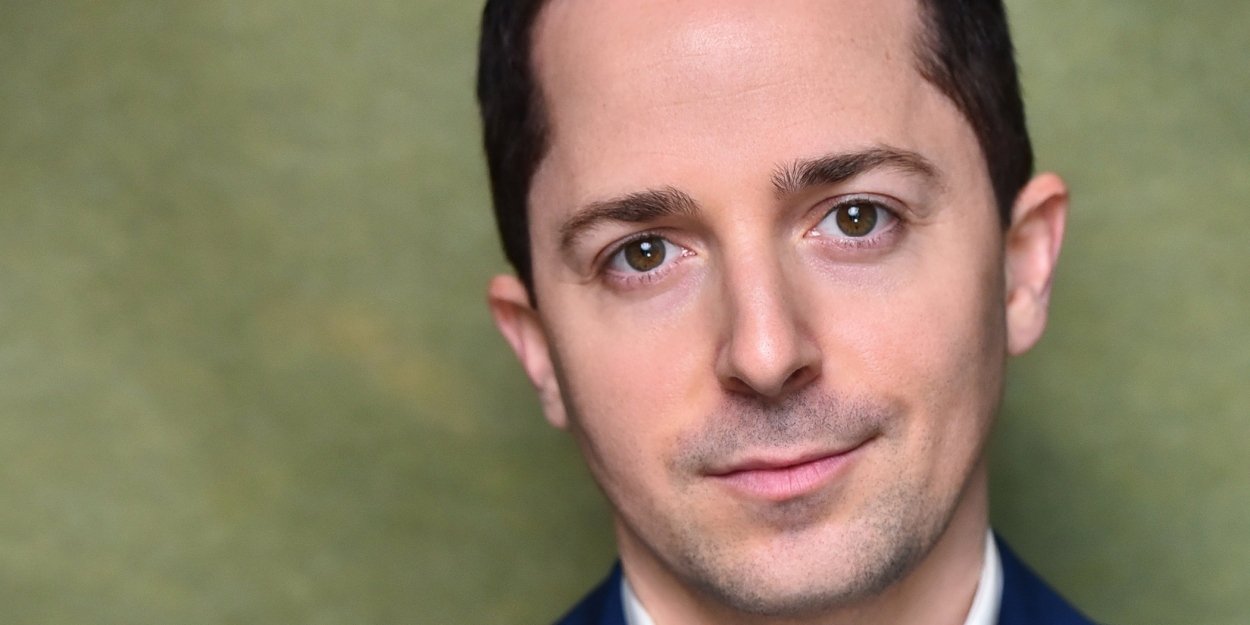Interview: Casey Adler of MIX-MIX: THE FILIPINO ADVENTURES OF A GERMAN JEWISH BOY at L. A. Theatre Center
On stage through June 16th.

A co-production between Latino Theater Conpany and Playwrights’ Arena, the world premiere of Boni B. Alvarez’ Mix-Mix: The Filipino Adventures of A German Jewish Boy opens May 18, 2024; at the Los Angeles Theatre Center. Playwrights’ Arena’s artistic director Jon Lawrence Rivera directs the cast of: Casey Adler, Alexis Camins, Angelita Esperanza, Mark Doerr, Kennedy Kabasares, Myra Cris Ocenar, Jill Remez, Giselle “G” Tongi and Mark McClain Wilson. Casey found time to answer a few of my queries.
Thank you for taking the time for this interview, Casey!
Likewise, thank you for taking the time to interview me.
What aspects of Mix-Mix attracted you to participate in it?
Any story that bridges a gap between two cultures is worth telling in the world we live in. Besides that, I love the immediacy and theatricality in the telling of this play. Boni wrote such an epic show that speaks to the current moment, I think any actor would feel honored to be a part of. While this story happened 70 years ago, sadly, being a child of war is just as relevant now. We all dream of playing a part in a play or movie that has a profound impact on others. I think a story like this can at least shed light on what it means to be a child trying to survive under the threat of constant death and destruction, from foot soldiers, fighter jets, unsanitary conditions, and hunger. Rudy, and the others in this play, experience so many different forms of violence that are still occurring in the world in which we live. One in every 5 children live within an armed conflict zone (UN Human Rights Office). That comes to roughly 468 million children—a truly daunting number. And each one of those children has their own unique story to tell. Watching Mix-Mix won’t cease any of these conflicts, but it could potentially provoke audience members to become a little more conscious and empathetic to the right of children to live in a safe world, free from carnage.
Were you already familiar with the historical elements of Mix-Mix? Or did you learn everything once you were cast?
I had a faint understanding about the Jews that escaped to the Philippines. However, diving into that history was quite fascinating. I learned more about America’s relationship to the Philippines than I ever learned in school. For one thing, I didn’t learn in my history classes that America owned the Philippines as a territory from the late 19th century all the way until 1946! Not only did we own the country, our State Department controlled their immigration. Thus, when the Filipino president, Manuel Quezon, originally accepted thirty to fifty thousand Jewish refugees, “his efforts were stymied by the US government, who limited him to accept 1,000 Jews a year, over a 10 year period,” as noted by The Times of Israel in an articleabout the rescue. The eventual number of Jews that escaped to the Philippines ended up being about 1,200, which is certainly admirable. How many more lives could have been saved if Manuel’s original plan wasn’t stopped?
Were you already familiar with the historical elements of Mix-Mix? Or did you learn historical elements of Mix-Mix? Or did you learn everything once you were cast?
I had a faint understanding about the Jews that escaped to the Philippines. However, diving into that history was quite fascinating. I learned more about America’s relationship to the Philippines than I ever learned in school. For one thing, I didn’t learn in my history classes that America owned the Philippines as a territory from the late 19th century all the way until 1946! Not only did we own the country, our State Department controlled their immigration. Thus, when the Filipino president, Manuel Quezon, originally accepted thirty to fifty thousand Jewish refugees, “his efforts were stymied by the US government, who limited him to accept 1,000 Jews a year, over a 10 year period,” as noted by The Times of Israel in an article about the rescue. The eventual number of Jews that escaped to the Philippines ended up being about 1,200, which is certainly admirable. How many more lives could have been saved if Manuel’s original plan wasn’t stopped?
Is there anything in your own life that you can relate to Rudy’s experiences?
There are so many aspects of Rudy that I relate to. The first is, of course, being Jewish. Even though I did not have family that perished in the Holocaust, I grew up with a profound connection to the historic event. I knew survivors and my own grandfather fought in World War II. And, whereas, Rudy’s family immigrated to the Philippines, my father’s side of the family immigrated to Mexico in the 1920s. Though I am not an immigrant, I am not far removed from my ancestors, who did make that journey to find a better and safer life.
Also, like many young Jews, I had a Bar Mitzvah. It was a big moment for me both culturally and personally. I thought of it as kind of a performance, standing before the whole congregation and reading from the Torah. Now I get to have a second Bar Mitzvah in Mix-Mix!
What would you say were the best qualities of Rudy?
Rudy is a kind and empathetic boy. He really gets along with everyone, even the Japanese soldiers under occupation. To see the humanity in others, even as they commit unspeakable acts of violence, is something difficult for most of us. Perhaps only children have that ability.
What do you see as Rudy’s character flaws?
From the first week of rehearsals, Boni Alvarez and I discussed Rudy’s “German stoicism.” It’s a bit like holding back your emotions to appear that everything is alright on the surface. Certainly, in some instances that may help, but it also can be damaging in other ways.
Have you worked with any of the Mix-Mix cast or creatives before?
Yes! I recently worked with Jill Remez, who plays my mother in Mix-Mix. I co-founded a group called JewFace, which seeks to incubate new short plays that encourage writers to create stories about controversial topics within Jewish culture. She was one of the actors in the staged reading of Yom Kippur Abortion Story by Shira Gorlick, as mentioned in this Broadway World article .
“Mix-Mix” is a direct English translation of the Tagalog word “Halo-Halo,” a popular Filipino dessert. Have you ever had a halo-halo?
Giselle Tongi, one of the actors in Mix-Mix, has been kind enough to bring so many delicious Filipino foods to rehearsal for us to try, including halo-halo. It was unlike any dessert I’ve ever had!
Did you have to learn a little Tagalog for this play?
I speak a couple of lines of Tagalog in the play, albeit, I speak them poorly. No one should come to me for Tagalog lessons.
You have careers as an actor, writer and comedian. What did you want to be growing up?
First and foremost, I am an actor. But as I’ve ventured into comedy, writing, and playwriting, what I’ve learned is they are all just different parts of storytelling. Wendy Kout, a wonderful playwright I’ve worked with, told me, “Casey, you’re building a sandbox. Sometimes you need to play on the monkey bars. Sometimes on the slide.”
Who were your various idols in your youth?
Al Pacino, Robin Williams, Eddie Murphy, Slash, and George Carlin. And of course mom and pops. A rather eclectic bunch of artistic rivers. My dad took me to see one of George Carlin’s last sets in high school and it was everything a young comic could imagine.
Which gives you greater gratification: Killing a stand-up audience as yourself? Immersing yourself in a scripted character? Watching your words getting the laughs and the crying that you intended?
They are all quite different and difficult in their own way. Stand-up comedy probably creates the most anxiety of the bunch because if you’re not getting a laugh there is no one to blame but yourself and your writing. So the possibility of such an extreme low also creates extreme highs.
Likewise, to truly immerse oneself in a character, dramatic or comedic, can be daunting. And especially in drama, it requires you to plumb the depths of your imagination and emotional memories in ways that can feel wrenching.
I sometimes feel a bit out of body in regards to seeing my writing produced on stage, especially when strong actors are inhabiting the characters. I almost forget that I wrote the piece! And, I’m often ready to move on to the next script.
What motivated you to start teaching acting and playwriting to kids, teens and young adults?
I love the art of acting and storytelling and I believe in its power to help people of all ages. At the time, I kind of just fell into teaching. I was a few years out of acting school and needed work—other than delivering food for Postmates and providing tours at Paramount Studios! A good friend of mine was teaching and so I followed his lead. It became more than a good job on the side. Teaching helped validate my own knowledge and abilities and be the teacher to kids that I I wished I had. No matter if they grow up to become professional actors or not, it’s a skill that will help them be more confident in their personal lives.
What’s in the near future for Casey J. Adler?
I’m in the early stages of getting a feature comedy off the ground that I co-wrote and will also star in. After I hop off the monkey bars, I’ll be moving to the slide.
Thank you again, Casey! I look forward to meeting your Rudy.
Thank you for your thoughtful and personal questions!
For ticket for Mix-Mix through June 16, 2024; click on the button below:
Photo courtesy of Latino Theater Company
Comments
.png)
|
.png)
|
Videos
